#11 May 1792
Photo



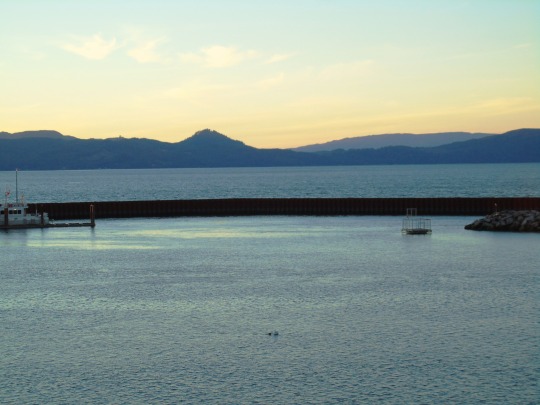






Robert Gray commands the first expedition to sail into the Columbia River on May 11, 1792.
#Columbia Gorge National Scenic Area#Robert Gray#first expedition#travel#Columbia River#11 May 1792#anniversary#US history#white colonialism#Historic Columbia River Highway#Old Highway 30#Washington#Oregon#riverbank#view#landscape#countryside#woods#forest#USA#summer 2017#Astoria#architecture#tourist attraction#landmark#original photography#cityscape
30 notes
·
View notes
Text
Bessières's correspondence
This is for @flowwochair: the index of the documents in the "Fonds Maréchal Bessières" in the French National Archives. Not much about the content, unfortunately. I summarised some points that I imagined were not all that interesting to you. Please let me know if there is something you'd want to have more details on and I will look if there is more.
1) Letters and orders by Napoleon to Bessières, dating from 1796 to 1813. It’s organized by the different armies and contains mostly »official« stuff of some importance, like documents related to the double abdication of the two Spanish Bourbon kings in 1808. Murat’s name is mentioned once, in connection with one document:
copies of Napoleon's instructions to Murat on how to deal with the Spanish, 17 and 28 April 1808
Maybe also of interest: some of the documents concern the reorganisation of the troops after the Russian campaign and date as late as mid and end-April 1813, so only days before his death
2) Letters from princes of the imperial family to Bessières
Mostly interesting because a large chunk seems to be labeled »a.s.«, which I believe to mean »autographe signée«, i.e., handwritten and signed. Most correspondence of important people would have been in the hands of secretaries, with the sender merely signing them. Bessières being worthy of receiving letters that these imperial princes had written themselves hints at a special position of trust.
41 letters from Joseph Bonaparte, related to events in Spain (1808 – 1811)
2 letters (not written by Jerome himself) about uprisings in Kassel in 1813
And here you go: 29 letters by Murat, in his own handwriting, relating to the daily report on the Guard, the policy to be followed, and to military events in Spain (dated 5 August 1805 to 5 June 1808)
Followed by some stuff for me: 22 letters from Eugène de Beauharnais, in his own handwriting and »d’un caractère surtout personnel« (of primarily private nature), dated 27 January 1805 - 5 June 1808
Other than that, there are letters from Josephine, Lebrun, Hortense, Stéphanie de Beauharnais, Méneval and the secretary of Madame Mère.
The rest of this section are documents related to Bessières’s military career, decorations etc.
3) Some personal letters. The connection between them escapes me
from Bessières to his sister-in-law (?), 22 February 1808.
from Bessières to a marshal on the reorganisation of the Guard, 27 January 1813.
from Madame la Maréchale concerning her financial distress, 12 December 1813 and 12 December 1814.
Facsimile of a letter from the Marshal to his wife, after his departure for the 1813 campaign
4) Certificates, letters of service and appointment, decorations
Some documents as early as 1792 among them, but mostly bits and bobs that seem unrelated
5) Letters adressed to Bessières – Army of Italy and Army of Egypt. 55 pieces
6) Ministers' reports to the Emperor and various letters. Plenty of documents and letters among them that are neither written by or adressed at Bessières
7) Imperial Guard I (Organisation, financial reports etc.)
8) Imperial Guard II (contains one more letter by Eugène!)
9) Imperial Guard III (Holland in 1810)
10) Legion of Honour and pay. 73 pieces, 1804 to 1813
11) Russia. Letters adressed to Bessières, situation reports, mostly from before the campaign started
12) Letters from Napoleon, the imperial family, the royal family and several famous personalities. A lot of them obviously from after Bessières’s death, among them (condolation) letters to Madame la Maréchale from
Napoleon - 6 May 1813
Madame Mère – 7 May 1813
Marie Louise – 5 May 1813
Caroline Murat – 25 May 1813
Eugène Beauharnais – 2 June 1813
Joachim Murat – 8 June 1813
Also contains 18 letters from Hortense de Beauharnais to Madame la Maréchale, dated 1809 to 1813, letters from Madame la Maréchale Oudinot, from Laure Junot, from Wellington (handwritten!) and plenty more
And on a happier note: a letter by Joachim Murat dated 1 Germinal year VIII (22 March 1800)
13) Related to Bessières’s city house
14) Correspondence between Marshal Bessières and Madame la Maréchale I
3 letters from Bessières to his wife, 2 prairial-15 vendémiaire an XIV (22 January-7 October 1805)
75 letters of Madame la Maréchale to Bessières, found in the cassette of the marshal after his death, 5 January 1806-1 May 1807
29 letters of Bessières to his wife, 26 March-13 December 1808
15) Correspondence between Marshal Bessières and Madame la Maréchale II. Continuation from above
72 (? I’m not sure about the numbering here) letters from Bessières to his wife, 5 January 1809, 28 September and ... 1811
48 (?) letters from Madame la Maréchale to the Marshal, January-9 December 1811
16) Correspondence between Marshal Bessières and Madame la Maréchale III. Continuation from above
9 letters from the Maréchale Bessières to her husband, 19 March - 16 December 1812
40 letters from Bessières to his wife, 13 January 1812 - 24 April 1813
17) Related to the electoral college of département Haute-Garonne
18) Personal papers, financial documents, real estate etc.
19) Letters to Madame la Maréchale during Restauration and July Monarchy
20) Collection of autographed letters unrelated to Bessières
37 notes
·
View notes
Text
This site compiled their addresses here though Barère's page is missing (here are some of his addresses), Lindet's address is different than the one give here, and though some mail was sent to Couthon where Robespierre lived, I think he had another address too? (Hérault is also just not listed but the site is centered around Thermidor.)

Copy-pasted below for convenience. I added their birthdates and astrological signs (for those who care about that):
Jean-Baptiste Robert Lindet
Age : Né à Bernay (Eure), 48 ans en thermidor. [2 mai 1746 ♉]
Adresse : 68, rue de la Sourdière.
Métier : Avocat
Fonctions : Député de l’Eure, membre du Comité de salut public du 6 avril 1793 au 7 octobre 1794
Antoine Louis Léon de Saint-Just
Age: Né à Décize, 26 ans en Thermidor an II [25 août 1767 ♍]
Adresse: 3, rue Caumartin, 2ème étage (depuis mars 1794), à la même adresse que Thuillier. Il demeurait auparavant à l’hôtel des États-Unis, rue Gaillon.
Fonction(s): Député de l’Aisne à la Convention depuis le 5 septembre 1792, membre du Comité de Salut Public depuis le 10 juin 1793.
Georges-Auguste Couthon
Age : Né à Orcet, 38 ans en thermidor [22 décembre 1755 ♑]
Adresse : 366, rue Saint Honoré
Profession : Avocat
Fonction(s) : Elu député du Puy-de-Dôme à la Convention le 6 septembre 1792. Membre du Comité de salut public du 10 juin 1793 au 9 Thermidor an II.
André Jeanbon, dit JEAN BON SAINT-ANDRÉ
Age : Né à Montauban, 45 ans en thermidor [25 février 1749 ♓]
Adresse : 7 rue Gaillon
Profession : Marin, puis pasteur
Fonction(s) : Elu député du Lot à la Convention le 5 septembre 1792, membre du Comité de salut public depuis le 10 juin 1793. Fréquemment en mission pour superviser les opérations maritimes, il est absent de Paris le 9-Thermidor.
Pierre-Louis Prieur, dit PRIEUR de la MARNE
Age : Né à Sommesous (Marne), 37 ans en thermidor [1er août 1756 ♌]
Surnom : Appelé Prieur de la Marne (pour le différencier de Prieur de la Côte-d’Or)
Adresse : 11, rue Helvetius
Métier : Avocat
Fonction(s) : Député de la Marne à la Convention depuis le 3 septembre 1792, membre du Comité de salut public du 10 juillet 1793 au 13 thermidor an II (31 juillet 1794), puis à nouveau du 15 vendémiaire au 15 pluviôse an III (6 octobre 1794-3 février 1795).
Absent de Paris au moment du 9-Thermidor.
Maximilien Marie Isidore de Robespierre
Age : Né à Arras, 36 ans en thermidor. [6 mai 1758 ♉]
Adresse : 366 rue Saint-Honoré (numérotation actuelle : 398)
Métier : Avocat
Fonction(s) : Député de Paris à la Convention nationale depuis le 5 septembre 1792 ; membre du Comité de salut public depuis le 27 juillet 1793
Claude-Antoine Prieur-Duvernois, dit PRIEUR de la CÔTE-d'OR
Age : Né à Auxonne, 30 ans en thermidor [22 décembre 1763 ♑]
Surnom : Appelé Prieur de la Côte-d’Or (pour le différencier de Prieur de la Marne)
Adresse : 5, rue Caumartin
Profession : Ingénieur militaire
Fonction(s) : Elu député de la Côte-d’Or à la Convention le 5 septembre 1792. Membre du Comité de salut public du 14 août 1793 au 16 vendémiaire an III (7 octobre 1794).
Lazare Nicolas Marguerite Carnot
Age : Né à Nolay, 41 ans en thermidor. [13 mai 1753 ♉]
Adresse : 2 rue Florentin
Métier : Mathématicien, physicien, militaire
Fonction(s) : Elu député du Pas-de-Calais à la Convention nationale le 5 septembre 1792 ; membre du Comité de salut public depuis le 14 août 1793, il le quitte le 7 octobre 1794 mais y siège à nouveau un mois plus tard, jusqu’au 6 mars 1795.
Jacques-Nicolas Billaud, dit BILLAUD-VARENNE
Age : Né à La Rochelle, 38 ans en Thermidor an II [23 avril 1756 ♉]
Adresse : 40 rue Saint-André-des-Arts
Métier : Avocat
Fonction(s) : Député de Paris à la Convention depuis le 7 septembre 1792, membre du Comité de Salut Public depuis le 5 septembre 1793
Jean-Marie Collot, dit COLLOT d'HERBOIS
Age : Né à Paris, 45 ans en Thermidor an II [19 juin 1749 ♊]
Adresse : 4 rue Favart (3ème étage)
Métier : Acteur, directeur de théâtre
Fonction(s) : Elu député de Paris à la Convention le 6 septembre 1792, membre du Comité de Salut Public depuis le 5 septembre 1793.
#the csp#committee of public safety#comité de salut public#antoine saint just#maximilien robespierre#robert lindet#lazare carnot#claude antoine prieur#jacques nicolas billaud varenne#collot d'herbois#georges couthon#andré jeanbon saint andré#pierre louis prieur#prieur duvernois#prieur de la côte d'or#prieur de la marne#jeanbon saint-andré#bertrand barère
38 notes
·
View notes
Text
The napoleonic marshal‘s children
After seeing @josefavomjaaga’s and @northernmariette’s marshal calendar, I wanted to do a similar thing for all the marshal’s children! So I did! I hope you like it. c:
I listed them in more or less chronological order but categorised them in years (especially because we don‘t know all their birthdays).
At the end of this post you are going to find remarks about some of the marshals because not every child is listed! ^^“
To the question about the sources: I mostly googled it and searched their dates in Wikipedia, ahaha. Nevertheless, I also found this website. However, I would be careful with it. We are talking about history and different sources can have different dates.
I am always open for corrections. Just correct me in the comments if you find or know a trustful source which would show that one or some of the dates are incorrect.
At the end of the day it is harmless fun and research. :)
Pre 1790
François Étienne Kellermann (4 August 1770- 2 June 1835)
Marguerite Cécile Kellermann (15 March 1773 - 12 August 1850)
Ernestine Grouchy (1787–1866)
Mélanie Marie Josèphe de Pérignon (1788 - 1858)
Alphonse Grouchy (1789–1864)
Jean-Baptiste Sophie Pierre de Pérignon (1789- 14 January 1807)
Marie Françoise Germaine de Pérignon (1789 - 15 May 1844)
Angélique Catherine Jourdan (1789 or 1791 - 7 March 1879)
1790 - 1791
Marie-Louise Oudinot (1790–1832)
Marie-Anne Masséna (8 July 1790 - 1794)
Charles Oudinot (1791 - 1863)
Aimee-Clementine Grouchy (1791–1826)
Anne-Francoise Moncey (1791–1842)
1792 - 1793
Bon-Louis Moncey (1792–1817)
Victorine Perrin (1792–1822)
Anne-Charlotte Macdonald (1792–1870)
François Henri de Pérignon (23 February 1793 - 19 October 1841)
Jacques Prosper Masséna (25 June 1793 - 13 May 1821)
1794 - 1795
Victoire Thècle Masséna (28 September 1794 - 18 March 1857)
Adele-Elisabeth Macdonald (1794–1822)
Marguerite-Félécité Desprez (1795-1854); adopted by Sérurier
Nicolette Oudinot (1795–1865)
Charles Perrin (1795–15 March 1827)
1796 - 1997
Emilie Oudinot (1796–1805)
Victor Grouchy (1796–1864)
Napoleon-Victor Perrin (24 October 1796 - 2 December 1853)
Jeanne Madeleine Delphine Jourdan (1797-1839)
1799
François Victor Masséna (2 April 1799 - 16 April 1863)
Joseph François Oscar Bernadotte (4 July 1799 – 8 July 1859)
Auguste Oudinot (1799–1835)
Caroline de Pérignon (1799-1819)
Eugene Perrin (1799–1852)
1800
Nina Jourdan (1800-1833)
Caroline Mortier de Trevise (1800–1842)
1801
Achille Charles Louis Napoléon Murat (21 January 1801 - 15 April 1847)
Louis Napoléon Lannes (30 July 1801 – 19 July 1874)
Elise Oudinot (1801–1882)
1802
Marie Letizia Joséphine Annonciade Murat (26 April 1802 - 12 March 1859)
Alfred-Jean Lannes (11 July 1802 – 20 June 1861)
Napoléon Bessière (2 August 1802 - 21 July 1856)
Paul Davout (1802–1803)
Napoléon Soult (1802–1857)
1803
Marie-Agnès Irma de Pérignon (5 April 1803 - 16 December 1849)
Joseph Napoléon Ney (8 May 1803 – 25 July 1857)
Lucien Charles Joseph Napoléon Murat (16 May 1803 - 10 April 1878)
Jean-Ernest Lannes (20 July 1803 – 24 November 1882)
Alexandrine-Aimee Macdonald (1803–1869)
Sophie Malvina Joséphine Mortier de Trévise ( 1803 - ???)
1804
Napoléon Mortier de Trévise (6 August 1804 - 29 December 1869)
Michel Louis Félix Ney (24 August 1804 – 14 July 1854)
Gustave-Olivier Lannes (4 December 1804 – 25 August 1875)
Joséphine Davout (1804–1805)
Hortense Soult (1804–1862)
Octavie de Pérignon (1804-1847)
1805
Louise Julie Caroline Murat (21 March 1805 - 1 December 1889)
Antoinette Joséphine Davout (1805 – 19 August 1821)
Stephanie-Josephine Perrin (1805–1832)
1806
Josephine-Louise Lannes (4 March 1806 – 8 November 1889)
Eugène Michel Ney (12 July 1806 – 25 October 1845)
Edouard Moriter de Trévise (1806–1815)
Léopold de Pérignon (1806-1862)
1807
Adèle Napoleone Davout (June 1807 – 21 January 1885)
Jeanne-Francoise Moncey (1807–1853)
1808: Stephanie Oudinot (1808-1893)
1809: Napoleon Davout (1809–1810)
1810: Napoleon Alexander Berthier (11 September 1810 – 10 February 1887)
1811
Napoleon Louis Davout (6 January 1811 - 13 June 1853)
Louise-Honorine Suchet (1811 – 1885)
Louise Mortier de Trévise (1811–1831)
1812
Edgar Napoléon Henry Ney (12 April 1812 – 4 October 1882)
Caroline-Joséphine Berthier (22 August 1812 – 1905)
Jules Davout (December 1812 - 1813)
1813: Louis-Napoleon Suchet (23 May 1813- 22 July 1867/77)
1814: Eve-Stéphanie Mortier de Trévise (1814–1831)
1815
Marie Anne Berthier (February 1815 - 23 July 1878)
Adelaide Louise Davout (8 July 1815 – 6 October 1892)
Laurent François or Laurent-Camille Saint-Cyr (I found two almost similar names with the same date so) (30 December 1815 – 30 January 1904)
1816: Louise Marie Oudinot (1816 - 1909)
1817
Caroline Oudinot (1817–1896)
Caroline Soult (1817–1817)
1819: Charles-Joseph Oudinot (1819–1858)
1820: Anne-Marie Suchet (1820 - 27 May 1835)
1822: Henri Oudinot ( 3 February 1822 – 29 July 1891)
1824: Louis Marie Macdonald (11 November 1824 - 6 April 1881.)
1830: Noemie Grouchy (1830–1843)
——————
Children without clear birthdays:
Camille Jourdan (died in 1842)
Sophie Jourdan (died in 1820)
Additional remarks:
- Marshal Berthier died 8.5 months before his last daughter‘s birth.
- Marshal Oudinot had 11 children and the age difference between his first and last child is around 32 years.
- The age difference between marshal Grouchy‘s first and last child is around 43 years.
- Marshal Lefebvre had fourteen children (12 sons, 2 daughters) but I couldn‘t find anything kind of reliable about them so they are not listed above. I am aware that two sons of him were listed in the link above. Nevertheless, I was uncertain to name them in my list because I thought that his last living son died in the Russian campaign while the website writes about the possibility of another son dying in 1817.
- Marshal Augerau had no children.
- Marshal Brune had apparently adopted two daughters whose names are unknown.
- Marshal Pérignon: I couldn‘t find anything about his daughters, Justine, Elisabeth and Adèle, except that they died in infancy.
- Marshal Sérurier had no biological children but adopted Marguerite-Félécité Desprez in 1814.
- Marshal Marmont had no children.
- I found out that marshal Saint-Cyr married his first cousin, lol.
- I didn‘t find anything about marshal Poniatowski having children. Apparently, he wasn‘t married either (thank you, @northernmariette for the correction of this fact! c:)
#Marshal‘s children calendar#literally every napoleonic marshal ahaha#napoleonic era#Napoleonic children#I am not putting all the children‘s names into the tags#Thank you no thank you! :)#YES I posted it without double checking every child so don‘t be surprised when I have to correct some stuff 😭#napoleon's marshals#napoleonic
71 notes
·
View notes
Note
Do you know why Jefferson place a bust of Hamilton in his entrance way? Or why he even had one at the very first place?
According to one of Jefferson's grandchildren;
After gazing a moment at these objects, the eye settled with a deeper interest on busts of Jefferson and Hamilton, by Ceracchi, placed on massive pedestals on each side of the main entrance “opposed in death as in life,” as the surviving original sometimes remarked, with a pensive smile, as he observed the notice they attracted.
Randall, Henry Stephens. The Life of Thomas Jefferson. United States, Derby & Jackson, 1858.


[Jefferson, Randolph, and Trist Family Papers, 1791-1874, #5385-ac, University of Virginia Library, Charlottesville, Va.]
When a guest had questioned the scenery, Jefferson wryly replied that they were “opposed in death as in life.” [x] But despite the vague phrasing, he never gave more of a reason. It is believed by some that it was a metaphor for Hamilton's and Jefferson's divide, yet essentiality in the building of America. Or Jefferson found it amusing, as it is said that his bust was on a green marble pedestal decorated with the signs of the zodiac and the twelve tribes of Israel, towering over Hamilton's. Although Jefferson's bust doesn't survive to this today, but we have a small description of it;
This rough pencil sketch, made by an unknown hand on the verso of a retained copy of a letter written by Jefferson's grandson Thomas Jefferson Randolph in December 1826, is the only extant image of a bust of Jefferson that Giuseppe Ceracchi modeled from life in Philadelphia sometime after 2 Mch. 1791. He intended to incorporate it, with other likenesses of prominent Ameri- cans, into a large monument that was never completed. In Florence during 1793 the artist transformed his original terra cotta study of Jefferson into a larger-than-life bust in marble, writing to Jefferson on 11 Mch. 1794 to report the work was finished.
Jefferson, Thomas. The Papers of Thomas Jefferson, Volume 28: 1 January 1794 to 29 February 1796. United States, Princeton University Press, 2018.
We luckily still have Hamilton's to this day, stylized in a Roman form by Giuseppe Ceracchi. When Ceracchi took a visit to the US in 1791-92, he proposed a monument in honor of the Revolution and appealed to Congress to finance the project. Ceracchi had attempted to raise the funds for the memorial, and Jefferson endorsed him and told Robert Livingston that he was; “a very celebrated sculptor from Rome.” [x] But unfortunately, Congress closed the proposal on May 7th, 1792.
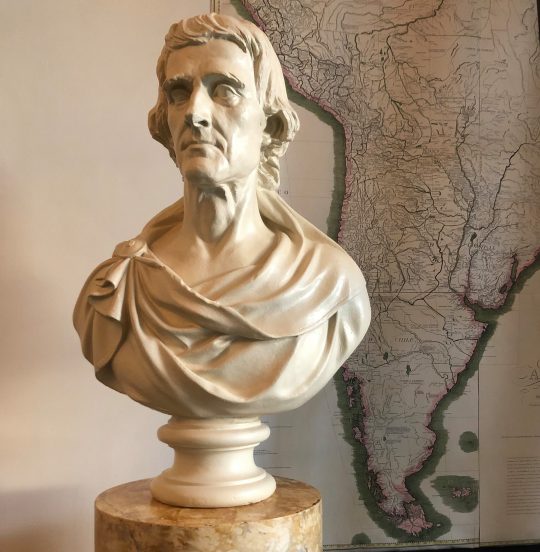
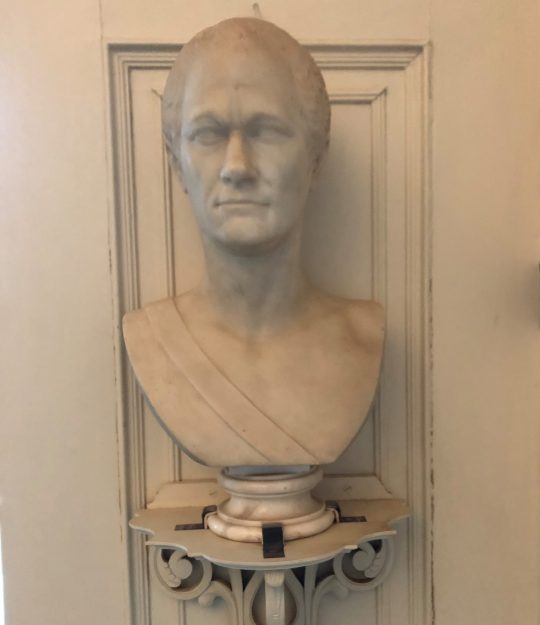
Today, Jefferson's bust has been replaced with a copy that you can find at Monticello.
#amrev#american history#alexander hamilton#historical alexander hamilton#thomas jefferson#monticello#history#founding fathers#queries#sincerely anonymous#cicero's history lessons
59 notes
·
View notes
Text
I've said this before but the theory that they may have held the 1792 belfast harp festival when they did (11 - 14th july) specifically to trap people in the city for the 14th july celebrations as well is sooo funny. (18thc belfast resident voice) attend my march boy
8 notes
·
View notes
Note
Do we know to what extent Danton was responsible for the September massacres?
According to Côme Simien’s Un ministre face aux massacres de septembre 1792 (published both as an article here and as chapter four of Danton: Le mythe et l’Histoire (2016)), this is a question that has been tackled a lot throughout the years with different historians giving widely different answers, though perhaps more due to ideological leanings and less due to them actually trying to find the truth.
The article itself establishes that Danton, throughout the weeks predating massacres, multiple times declared himself sympathetic of swiftly punishing the enemies of the revolution, in order to calm the masses and avoid an outburst of ”popular justice” (without neccesarily condemning said justice). On August 11, in his first speech held as minister of justice, he said the following:
Citizens, the French nation, to rid herself of despotism, made a revolution; but she has compromised to generously with the tyrants. The experience has proven to her that there’s nothing to hope for in the old oppressors of the people. She will regain her rights… But in all times, and especially in particular debates, where the action of justice begins, popular revenge must end. I take before the National Assembly the commitment to protect the men who are within its precincts: I will walk at their head, and I answer for them.
The same day, he promised a crowd that presented itself before the Assembly that ”justice would have its course” with the survivors of the Swiss guards who had been protecting the Tuileries palace.
A week later, on August 19, he similarily said:
Swear equality; congratulate the National Assembly on its liberating decrees; turn against the traitors, against the enemies of the fatherland and public happiness, let the sword of the law in your hand be directed against the apostles of freedom. Let the justice of the courts begin, and the justice of the people will cease!
And on August 28, when speaking of the foreign troops marching against Paris, he proclaimed the following:
The time has come to tell the people that they must throw themselves upon their enemies en masse. When a ship is wrecked the crew throws overboard everything that endangers it. In the same way, everything that might endanger the nation must be expelled and whatever may be of use put at the disposal of the local authorities, in return for compensation. […] But for these measures to have their effect, we have closed the gates of the capital, and we were right to. If one still needs to put 30,000 traitors under the law, let them be put there tomorrow, but let us communicate with France as a whole. The municipality is vested with the right to seize all male suspects; but, as of tomorrow, the people can come to defend you and communicate with the inhabitants of Paris.
Finally, on September 2, after the news that the last fort standing between Paris and the enemy had been taken, Danton went up and held the speech which contains his famous words ”the toscin which is about to sound is not a signal for alarm, it is a call to charge upon the enemies of the fatherland. To defeat them, monsieurs, we must be bold, and bolder still and forever bold, and and France will be saved.” After that he went out to order the Paris Commune to start ringing the toscin.
So to summarize Danton’s actions in the leadup to the massacres, it can be established that he never openly called for them to happen, and that there’s even less proof for the idea that he orchestrated them. At the same time, it’s not impossible that his words about charging upon the enemies of the people, though clearly mainly about the emerging foreign armies, also contributed to the intoxication of violence spreading through Paris, and one can wonder if it was just pure chance the massacres got started the same day Danton held his fiery speech and ordered the toscin to start ringing…
Once the massacres get going, Danton disappears from the public scene. Discours de Danton doesn’t record him as having intervened in any debate until September 8. We do however know of a circular drafted on September 3 by the surveillance committee of the Paris Commune, a circular which invited the departments to imitate the massacres in the capital and bore the countersignature of the Ministry of Justice. According to Simien’s article, it is however not fully established if it was Danton himself who affixed this signature, or his general secretary Fabre d'Églantine.
The article further establishes that Danton saved Adrien Duport from the massacres by refusing his transfer to Paris ordered by the surveillance committee. On September 7 and 9 he also ordered that those arrested in the vicinity of the capital "should not be transferred to Paris, given the circumstances.” On September 2 he tried to protect 53 prisoners from Orléans by ordering them to be sent to Saumur instead of Paris. This last move was however not one that was met with success, as the prisoners were instead transferred to the capital by a Parisian army on September 4, where they were massacred five days later. Finally, we also know that on September 4, Danton personally intervened to save Roland from an arrest warrant recently issued against him. In Discours de Jérôme Pétion sur l’accusation intentée contre Maximilien Robespierre (November 5 1792) Pétion described this in the following way:
The surveillance Committee launched an arrest warrant against Minister Roland; it was the 4th (September), and the massacres were still going on. Danton was informed of it, he came to town hall, he was with Robespierre; he was very enraged over this arbitrary and mad act; it would have lost, not Roland, but those who had awarded him. Danton provoked its revocation, it was buried in oblivion.
Speaking of the massacres after the fact, Danton judged them to have been terrible, but also necessary and even unstoppable:
Perhaps Pétion could have explained to you more clearly that these deplorable scenes, these terrible massacres, which were so well taken advantage of to embitter the departments against Paris, perhaps he should have told you clearly that no human power would have been able to stop the effects of this revolutionary thirst, of this rage which set everything ablaze. A great people, perhaps a few members of the Extraordinary Commission, informed of these deplorable events, could also have reminded you that these terrible acts, over which we all mourn, were the consequence of a revolution; and if individuals can be blamed for having professed acts of revenge, it was never the immediate action of a few individuals, but indeed of a people, which had never seen justice take its course with the greatest culprits. If one had explained these dreadful events frankly, we would have been spared from many calumnies.
Danton at the Convention, January 21 1793
Here, public safety demands great means, terrible measures. I see no middle ground between ordinary forms and a revolutionary tribunal. History has attested to this truth; and since one has dared, in this Assembly, to recall those bloody days over which every good citizen has groaned, I say that if a tribunal had existed back then, the people, to whom we have so often, so cruelly reproached those days, would not have bloodied their hands. I will say, and I will have the assent of all who witnessed these events, that no human power was in a position to stop the overflow of national vengeance. Let us take advantage of the faults of our predecessors. Let us do what the Legislative Assembly didn’t: let us be terrible in order to prevent the people from being so.
Danton at the Convention, March 10 1793
Finally, there also exists several anecdotes regarding Danton and his role in the massacres, though given the fact they’re mostly from after his death and/or written by his enemies, they should be treated with caution:
Grandpré, who, by his position, is bound to render an account to the Minister of the Interior of the state of the prisons, had found their sad inhabitants in the greatest terror on the morning of September 2; he had taken many steps to facilitate the departure of several of these, and had succeeded with a fairly good number; but the rumors which had spread held those who remained in the greatest perplexity. This estimable citizen, back at the hôtel de ville, awaits the ministers at the end of the council: Danton appears first; he approaches him, talks to him about what he has seen, recounts the steps, the requisitions made to the armed force by the Minister of the Interior, the lack of regard that seems to be there, the alarms of the prisoners and the care that he, as minister of justice, has to take for them. Danton, bothered by the unfortunate description, exclaims with his bellowing voice and a gesture appropriate to the expression: I don’t give a fuck about the prisoners or what happens to them! — and he goes away with temperament. It was in the second antechamber, in the presence of twenty people, who all shuddered to hear such a harsh Minister of Justice.
Appel à l’impartiale postérité (1793) by Manon Roland (written somewhere between her arrest in June and execution in November)
September 2, at midday, I go, hearing the noise of the tocsin and the cannon of alarm, to my section de l'Unité. People came to announce that the barriers had been closed. A general consternation was painted on all faces. At the news of the arrival of the Prussians in Paris, as well as of a conspiracy of the prisoners against the patriots (a vague rumor had been circulating about it for fifteen days), a number of citizens questioned me on this subject.
”Your profession as a journalist should enable you to know something,” one said to me.
”I know nothing,” I responded, ”but I’m going to visit someone who could tell me.” As I knew Camille Desmoulins since a long time back, I thought it a good idea to go to his house. I didn’t find him anywhere, one assured me that he was at Danton’s, minister of justice. It was about half past two in the afternoon, I went home to the minister, and told him: ”I have come, in the quality of pure patriotism and in my own name, to ask you what this canon of alarm, this toscin and the arrival of the Prussians to Paris.”
”Calm down, old friend of liberty,” Danton responded, ”it’s the toscin of victory.”
”But,” I told him, ”people talk about slitting throats.”
”Yes,” he told me, ”we were all about to have our throats cut this night, starting with the most patriotic. All those arisocrat rascals, who are in the prisons, had been provided with firearms and daggers. At a specified time next night, the gates were to be opened to them; they would have spread in different quarters to cut the throats of the wives and children of the patriots who will leave to march against the Prussians. We addressed ourselves principally, above all, to those who had demonstrated the principles of freedom.”
”All this comes off as a bit made up to me,” I responded, ”but what means are to be employed to prevent the execution of such a plot?”
”What means?” he said. ”The People, irritated and instructed in time, want to do justice themselves to all the bad subjects inside the prisons.” At these words I was seized with horror; I told him that such a measure appeared to me unworthy of a people who claimed to be free. At this moment, Camille Desmoulins entered.
”Hello there!” Danton said to him. ”Prudhomme just asked me what is to be done.
”Yes,” I said, ”and I am heartbroken after what I have just heard.
”So you didn’t tell him that one won’t mix up the innocent with the guilty? Camille said to Danton. ”All those who will be claimed by their sections will be returned.”
”Seems to me that we could take a less violent measure,” I responded. ”Spilling blood is an abominable act of which those who govern are responsible. The people will one day make those who make them commit this crime pay dearly. Let Paris marche en masse against the Prussians. Send the wives and children of those who are to march at the enemy out of Paris to avoid them getting massacred by the prisoners, let us lock them up in fortified castles.”
”Any kind of moderate measure is useless,” Danton said. ”The anger of the people is at its height, there would even be danger in stopping it.” His first anger assuaged, one could make him listen to reason.
”But,” I say, ”if the Legislative body and the constituted authorities spread themselves through Paris, and harangued the people?”
”No, no,” replied Camille, ”that would be too dangerous; for the people, in their first wrath, might make victims in the person of their dearest friends.” I withdrew filled with pain. As I passed through the dining room, I saw the wives of Camille, Danton, Robert, etc, Fabre-d'Eglantine, and other guests. I did not know what to think of the tranquility that reigned at the house of the Minister of Justice; everything led me to believe that it was indeed impossible to stop the resentment of the People, at the news of a conspiracy hatched by the nobles and priests.
l’Histoire générale et impartiale des erreurs, des fautes et des crimes commis pendant la Révolution (1797) by Louis-Marie Prudhomme
I was on time for the appointment, and Danton received me in the chamber of the Seal of State — in that same room where, twenty-two years later in the month of May 1814, I found myself sitting with Chancellor Dambray at the same table near which I had been sitting beside Danton in 1792. […] ”So, in a word (Danton said), do you know who gave the orders for those September Massacres you inveighed against so violently and irresponsibly?... It was I."
"You!" I exclaimed, with an uncontrollable expression of horror.
"Yes, that's right. But pray collect yourself and continue to hear me calmly. To judge such actions, you must envisage the situation in which we found ourselves as a whole. You must remember that when the entire male population of military age was speeding to the armies and leaving us without forces in Paris, the prisons were bulging with a mass of conspirators and wretches who were only waiting for the approach of the Foreigner to rise up and massacre us ourselves. I only acted to anticipate them and throw their plans for vengeance back at them by making them undergo the fate they planned for us. But I had further reasons. Don't think that I am deceived by these spurts of patriotic enthusiasm that carry away your youthful virtue. No, I know what rehance to place on this inconstancy, on these rapid transitions that so often expose us to panics, flight, shouts of everyone for himself, and even treason. So I did not want all these Parisian youths to arrive in Champagne until they were covered with blood, which for us would be a guarantee of their loyalty; I wanted to place a river of blood between them and the émigrés…"
"Monsieur Danton, you make me shudder."
"Very well, shudder as much as you like, but learn to control your shuddering instead of continually vaunting it; and believe me, this is the best advice you can be given."
Louis-Philippe: mémoires 1773-1793 (1977)
In his Réponse au rapport de Saint−Just, [Brissot] assures that he would have gone to the by then ”almightly” Minister of Justice on September 2, in order to beg him to "take all means to stop these crimes that dishonored the revolution". But Danton would have told him that "this was necessary to appease the people of Paris, weary of seeing the conspirators go unpunished". Then he is said to have added: “It is an indispensable sacrifice […] besides, the people of Paris are not mistaken. Vox populi, vox Dei, that's the truest and most republican adage I know.”
Since I can’t find this Réponse au rapport de Saint−Just anywhere, I’m just citing what the article says about it.
#danton#georges danton#yes i know this ask is two months old#but hey at least it’s almost september now#ask#french revolution#frev
20 notes
·
View notes
Text
burr pt.2 electric boogaloo (this joke is only funny to me)
its politics time, because Burr had a really fucking long political career and i get tired just reading about it. (also here's pt. 1)
Washington and Adams Administrations
Burr said he found politics "a great deal of fun" so he entered the 1792 gubernatorial race in NY, but withdrew bc Daddy Clinton told him to. He was supported by Northern republicans, but was distrusted by Southerners (wonder why). According to James Monroe, my detested, it was better to select "a person of more advanced life and longer standing in publick trust, particularly one who in consequence of such service had given unequivocal proofs of what his principles really were." Now, you may be thinking that he must be talking about Jefferson, but this is Monroe, and he was probably just kissing his own ass, as per usual.
Burr sided with anti-administration forces who opposed Hamilton's financial plan and Washington's foreign policy. Burr also defended Albert Gallatin who was unseated in 1794 after Federalists determined he did not meet the 9 year citizenship requirement.
Burr voted against Washington's nomination of John Jay as envoy to Britain in 1794, and was one of the most outspoken opponents of the Jay treaty.
Burr set his sights on the presidency with an energetic campaign in the 1796 election, and Republicans endorsed him as their second choice (ie vice-president canidate), but it was still a little divisive. Most, if not all, Democratic-Republicans voted for Thomas Jefferson, and only half of his voters also voted for Burr. Burr finished fourth with 30 electoral votes.
Burr retired from the Senate in 1797, and returned to the New York Assembly in 1798, making several enemies during his brief term. As relations with France got heated over the XYZ affair, Burr advocated for defensive measures to protect New York harbor. This was reasonable since New York was very strategically important, but it's location made it vulnerable to a naval attack. This prompted accusations that Burr had switched parties to the Federalist side, and that he abused public trust for personal benefit, a common theme in rumors about him. Allegedly, he participated in private land speculation ventures in NY and sought to enact legislation removing restrictions on land ownership by non-citizens, which would increase the value of western lands. Basically, they thought he was trying to influence legislation so he could make money.
Hammy boy is back and this time he is working together with Burr. Burr and Hamilton secured a charter and raised subscriptions for a private company to improve the water supply of Manhattan. These were two incredibly intelligent and creative men, and that is greatly reflected in their choice for the company's name, The Manhattan Water Company (/sarcasm). Turns out, the extra money from this was used to establish the Bank of Manhattan, which was controlled by Republicans. Pretend to be shocked even though both of them lived on Wall Street.
Some weird shit went down with the Republican voters in New York in the 1799 election, and Burr was turned out of office. People were really suspicious of him, but he remained a vital asset.
Burr opposed the Alien and Sedition Acts, which won him Demo-Republican support, especially in New York which had a large immigrant population. This ensured that NYC elected a Republican delegation to the state legislature in 1800.
Election of 1800
Republicans wanted a New Yorker for their 2nd presidential choice (im saying this instead of vice presidential candidate and you'll see why). Clinton refused, so Burr was the next option. He was nominated on May 11, 1800. Jefferson claimed he harbored reservations of Burr, but he was acting all nice to him to ensure Republican victory. Jefferson was also very busy with his behind-the-scenes campaign, writing letters and encouraging press support that was critical of the Adams Administration. This is when he called him a hermaphrodite btw.
Burr had a far more active campaign technique. He visited Rhode Island and Connecticut in late August to secure Republican support. Burr's political prowess during 1800 raised suspicion among enemies and supporters. He didn't fit the stoic, unattached statesman who just let his supporters run the campaign for him. Burr campaigned more like a modern politician.
It was generally expected that each elector would cast one vote for Jefferson, one for Burr. Each elector had two votes, and they didn't distinguish who they wanted for president, and who they wanted for vice president. Whoever came in second would be VP, so the party would generally determine who they would advocate the most, and who they would advocate the second most. Basically they were like "this guy is great! this guy is also pretty good. also we HATE those guys (other party's nominees)" So, they really just hoped that Jefferson would get the most, and Burr would get second.
...but, uh, by mid-December, Republicans still didn't have a president in office. They definitely defeated the Federalists, because Adams and Jay had like. no votes. But Jefferson and Burr both had 73 votes, and were at a stalemate, which meant that the vote would be taken to the House of Representatives.
Federalists JUMPED on this opportunity, specifically Hamilton, who had already doomed Adams to lose the election. Some Federalists believed that Burr was more flexible and less partisan, and would be more likely to approve Federalist legislation. Other Federalists who supported Burr hoped that if the two parties were deadlocked for too long, Federalist-leaning Congress would resolve the impasse with legislation authorizing the Senate to elect a Federalist president. This is stupid and idk why people thought this was possible.
Hamilton launched into his smear campaign of Burr. He advised other Federalists not to trust Burr in very simple words, but in the background he was spreading awful rumors about Burr, which was pretty usual. The only difference from how he attacked Burr vs how he attacked Adams is that he didn't publish anything about Burr, but he would have.
The House of Representatives announced Jefferson was the winner on February 17, 1801. Burr made only a few comments and they were guarded, evasive, and contradictory. He seemed particularly angry that there were rumors that he was soliciting Federalist support in an attempt to steal the presidency, which he didn't do, but he happily accepted any Federalist votes.
"...take no step whatsoever, by which the choice of the House of Representatives can be impeded or embarrassed, [instead] keep the game perfectly in Your own hand." -advice from Federalist Robert Goodloe Harber against withdrawing from the election that Burr followed
Jefferson Administration
Burr was inaugurated as VP on March 4, 1804 by James Hillhouse in the Senate Chamber of the new capitol. He gave a brief address of "about 3 sentences" which was overshadowed by Jefferson's speech.
He immediately received a shit ton of letters from associates seeking appointments and demanding removal of Federalists. He handed these off to Jefferson, who removed the "midnight appointments" from the Adams Administration.
In fall of 1801, Burr campaigned for a naval position for Matthew L. Davis, and it was around this time that Jefferson began to distance himself from Burr. Davis' appointment was reliant on Clinton and De Witt for a NY appointment. De Witt talked mad shit about Burr, and Burr was so upset that he talked in the third person about it (he did this a lot).
"The handbills were numerous, of various descriptions, uniform however in Virulent and indecent abuse. [T]o Vilify A.B. was deemed of so much consequence that packages of them were sent to various parts of the country." -Burr
Burr lost like. all political relevance except for being VP. I mean, people still respected him because he wasn't bad at his job, but they were incredibly suspicious of his Federalist friendships, alienation from Republicans, and his now infamous opportunism.
On January 27, 1802. Burr cast a tie-breaking vote that undercut Republican effort to repeal the Judiciary Act of 1801, which provided reforms to the Supreme Court which allowed for a potentially Federalist controlled judiciary (shout out John Marshall). Burr voted for Republican repeal, and secretly informed Federalists he would add amendments to make it acceptable to moderate Republicans. He resolved the tie in favor of Federalists.
"I am for the affirmative, because I can never resist the reference of a measure where the Senate is so nicely balanced, when the object is to effect amendment, that may accommodate it to the opinions of a larger majority; & particularly when I can believe that gentlemen are sincere in wishing a reference for this purpose. Should it, however, at any time appear that delay only is intended, my conduct will be different." -Burr (apparently in 2020 I didn't think it was important to have dates for my quotes.)
After Burr announced a select committee consisting of 2 Republicans, 2 Federalists, and 1 moderate, The New York Evening Post wrote, "The Vice President was very deliberate. He took ballots of the respective Senators, examined them attentively, state the number of them, & holding them up in his hand, mentioned that gentlemen, if they chose, might come and examine them. Mr. G[ouverneur] Morris hoped never to see, in the Senate, a proceeding implying so much distrust." And i'd love to tell you what political party the Evening Post was associated with, but I didn't know how to take notes in 2020, and I'm losing my mind just a little.
Burr continued to be estranged from his own party, possibly to form his own, but no one really liked him so, tough luck. Burr contacted Jefferson, saying that he thought it was best for him to retire for the sake of the party, and wanted Jefferson to publicly give him his confidence. Jefferson said he had no influence in the last election, but he would in the next, which is weird and foreboding but aight. Jefferson didn't trust Burr because he was pissy that Burr warned Madison not to trust people (ie Jefferson) too much.
Burr retired without Jefferson's "mark of favor", and was replaced as VP by Clinton. After leaving the vice-presidency, he entered the NY gubernatorial race to have some kind of a job, since he was majorly in debt.
*wipes sweat dramatically* okay so i think i'll have 1-2 more Burr posts, and then we're onto Lafayette, which is going to be significantly more extensive because I've read two full books about him, and taken notes on him. and THEN i have to do Hamilton which will be. even more extensive. but we got this. okay bye see you in the next one
#aaron burr#history#amrev#alexander hamilton#american history#amrev history#thomas jefferson#founding fathers#election of 1800#do it for richie 💪
20 notes
·
View notes
Text
top enstars character rankings on pixiv

i decided to do this for fun. i looked up the number of works per character tag on pixiv and ranked the enstars characters from 1-49.
i also added the data afterwards which you can look at to see the numbers. non-idol characters are at the end, i just didn’t include them in the list.
(please take note this is not a true popularity ranking, lots of factors may play into it like popular ships or groups, and artists don’t represent the fandom as a whole. also note that pixiv is generally made up of japanese artists so character popularity might differ between regions—like china, korea, and the rest of the world…)
Top Enstars Characters on Pixiv
1. Leo Tsukinaga
2. Ritsu Sakuma
3. Izumi Sena
4. Rei Sakuma
5. Mika Kagehira
6. Tsukasa Suou
7. Kanata Shinkai
8. Chiaki Morisawa
9. Hajime Shino
10. Nazuna Nito
11. Shinobu Sengoku
12. Shu Itsuki
13. Tori Himemiya
14. Wataru Hibiki
15. Kaoru Hakaze
16. Eichi Tenshouin
17. Mao Isara
18. Natsume Sakasaki
19. Koga Oogami
20. Midori Takamine
21. Arashi Narukami
22. Yuuta Aoi
23. Hinata Aoi
24. Rinne Amagi
25. Makoto Yuuki
26. Tomoya Mashiro
27. Subaru Akehoshi
28. Kohaku Oukawa
29. Tetora Nagumo
30. Ibara Saegusa
31. Hiiro Amagi
32. Mayoi Ayase
33. Hiyori Tomoe
34. Hokuto Hidaka
35. Jun Sazanami
36. Keito Hasumi
37. Tsumugi Aoba
38. Aira Shiratori
39. Niki Shiina
40. Kuro Kiryu
41. HiMERU
42. Souma Kanzaki
43. Mardara Mikejima
44. Adonis Otagari
45. Sora Harukawa
46. Mitsuru Tenma
47. Yuzuru Fushimi
48. Tatsumi Kazehiya
49. Nagisa Ran
Here’s the data i compiled… I included units in this at the last minute, but it has some problems— it was hard to find proper tags for a lot of them mainly because the names might be common words and there would be another fandom’s art in the tag, also a lot of art doesn’t get tagged with the unit name (just the character names)
fine 815
eichi tenshouin 4663
yuzuru fushimi 1925
wataru hibiki 4833
tori himemiya 4878
trickstar 1955
hokuto hidaka 2670
makoto yuuki 3428
mao isara 4400
subaru akehoshi 2949
ryusetai 4424
shinobu sengoku 5037
midori takimine 3749
tetora nagumo 2853
kanata shinkai 5832
chiaki morisawa 5677
eden 1229
nagisa ran 1792
hiyori tomoe 2696
jun sazanami 2648
ibara saegusa 2817
alkaloid 1990
hiiro amagi 2799
aira shiratori 2438
mayoi ayase 2773
tatsumi kazehiya 1900
valkyrie 2093
mika kagehira 6697
shu itsuki 4956
2wink 3312
hinata aoi 3507
yuuta aoi 3529
crazy:b 1872
rinne amagi 3445
niki shiina 2347
kohaku oukawa 2856
HiMERU 2275
UNDEAD 2626
Rei Sakuma 8268
Kaoru Hakaze 4828
Adonis Otogari 2090
Koga Oogami 3840
Akatsuki 1303
Keito Hasumi 2606
Kuro Kiryu 2324
Souma Kanzaki 2206
Ra*bits 3342
Hajime Shino 5439
Mitsuru Tenma 1965
nazuna nito 5348
tomoya mashiro 3418
knights 2045
tsukasa suou 6527
izumi sena 8389
arashi narukami 3594
leo tsukinaga 10051
ritsu sakuma 9606
switch 1602
tsumugi aoba 2440
sora harukawa 2043
natsume sakasaki 4248
MaM
Madara Mikejima 2108
Double Face 363
Madara Mikejima 2108
Kohaku oukawa 2856
others
Jin Sagami 315
Akiomi Kunugi 267
Seiya Hidaka 54
couldn’t find a proper tag for gatekeeper
7 notes
·
View notes
Text






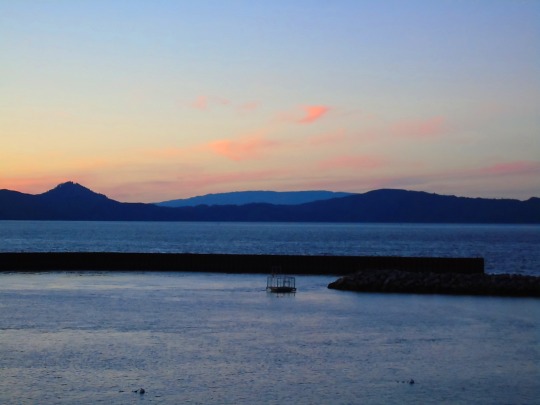











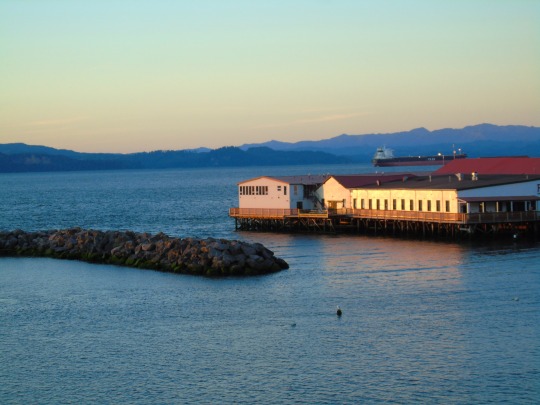



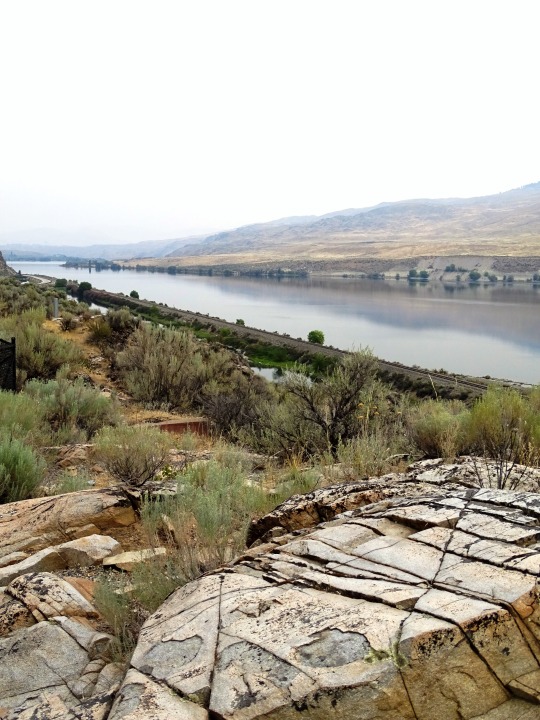






Robert Gray commanded the first expedition to sail into the Columbia River on May 11, 1792.
#Robert Gray#first expedition#Columbia River#11 May 1792#anniversary#US history#landscape#original photography#Oregon#USA#travel#summer 2017#nature#flora#Historic Columbia River Highway#Columbia River Gorge#Washington#Rowena Crest Viewpoint#landmark#Columbia Gorge National Scenic Area#tourist attraction#Astoria#Mount Hood#vacation#Chelan#Maryhill
2 notes
·
View notes
Text
Bridgerton Astrology & Chinese Zodiac Signs
I tried my best to make this as accurate as possible, but there was some conflicting information. Unfortunately not everyone’s birthdays are known, so not all have an astrology sign. I have bolded my personal guess for those that have a few possibilities in their signs.
Edmund Bridgerton
1764
Monkey
Violet Bridgerton
April 11, 1766
Aires, Dog
Anthony Bridgerton
September 17, 1784
Virgo, Dragon
Kate Sharma
1793
Ox
Benedict Bridgerton
July/August 1786
Cancer/Leo/Virgo, Horse
Sophie Beckett
1794
Tiger
Colin Bridgerton
March 2, 1791
Pisces, Pig
Penelope Featherington
April 8, 1796
Aires, Dragon
Daphne Bridgerton
August/September 1792
Leo/Virgo/Libra, Rat
Simon Basset
1784
Dragon
Eloise Bridgerton
April 1796
Aires/Taurus, Dragon
Phillip Crane
1794
Tiger
Francesca Bridgerton
April 1797
Aires/Taurus, Snake
John Stirling
1792
Rat
Michael Stirling
1791
Pig
Gregory Bridgerton
January/February 1801
Capricorn/Aquarius/Pisces, Monkey/Rooster
Lucy Abernathy
1807
Rabbit
Hyacinth Bridgerton
May/June 1803
Taurus/Gemini/Cancer, Pig
Gareth St. Clair
1797
Snake
#bridgerton#bridgerton books#edmund bridgerton#violet bridgerton#anthony bridgerton#kate sharma#benedict bridgerton#sophie beckett#colin bridgerton#penelope featherington#daphne bridgerton#simon basset#eloise bridgerton#phillip crane#francesca bridgerton#michael stirling#john stirling#gregory bridgerton#lucy abernathy#hyacinth bridgerton#gareth st clair#astrology#horoscope#chinese zodiac#zodiac signs
6 notes
·
View notes
Text
Christa Winsloe's maternal aunts: middle names
Also (accidentally): Happy 205th birthday, Ernst Wilhelm Hermann Scherz (Chris' grandfather) 29.12.1818—?.1888 (69 years old)
Chris (Christa Kate Winsloe, 23.12.1888) was born in the same year when her grandfather died, but 99 per cent, the two relatives hadn't lived at the same time at all.
Continuation of THIS post.
Both of youngest sisters had middle name from their Mother (her first), and the first sister had first name that was girl version of the second name of father's (Wilhelm —> Wilhelmine.) Also, Rosalie the good Aunt was named after her aunt (Mum's sister.)
Actually, there are more relative with middle name Wilhelm or Wilhelmine (2 Wilhelmine.)
Bad aunt Wilhelmine Hedwig could be named after the following relatives: a. her father Ernst Wilhelm Hermann, b. her paternal grandmother Johanna Wilhelmine Emile Scherz (née Koeppen (Köppen?)), c. her father's sister Wilhelmine Marie Luise (b. 1816) AND she's also. . .
. . . most likely, a namesake of bad aunt Luise (Tante Luise) as she's named in the book.
Crazy coincidence (or whatever it is): parents of Chris' maternal grandfather had varistions of the same name, Johann Wilhelm (1792–1853) & Johanna Wilhelmine (unknown dates of life)
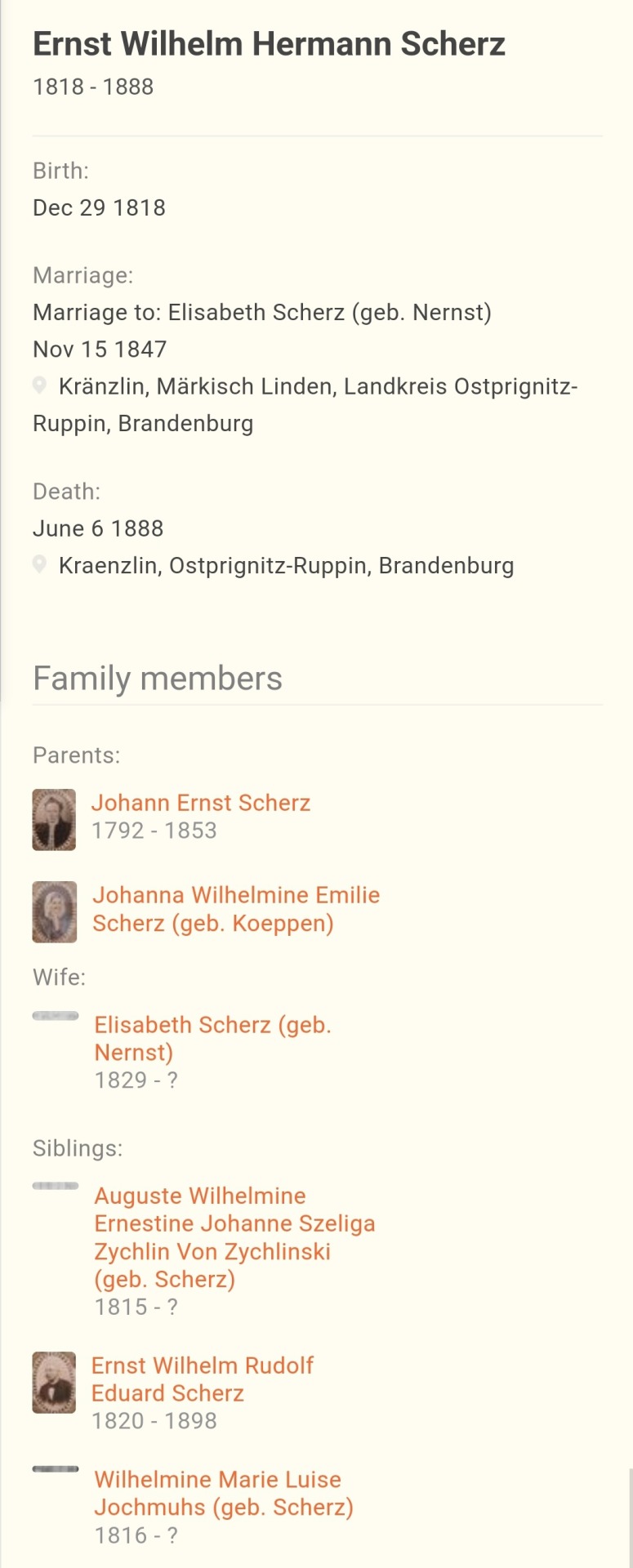
Katharina Elisabeth (Chris' Mum) & Rosalie Elisabeth (good aunt). Their middle name is their Mum's (b. ca. 1829) first name (she had one name only?) AND ALSO, the sisters' grandmother was Elisabeth Nernst (née Baath) (exactly the same name as her daughter, the sisters' Mum.)
Here's the proof of why Rosalie was named so (most likely.) Her maternal aunt Rosalie Scherz (1828–1952) She had been living for 23 or 24 years only. Hopefully, the good aunt Rosalie K. had been living at least three times longer.
Grandparents. Elisabeth (circa 1829) & Ernst Wilhelm Hermann (1888) had 10 or 11 years difference. So, their daughter Katharina Elisabeth's (6 of May, 1859) (Käte in the book) difference with Arthur Winsloe (1849, sometime mid-summer, most likely) (no name in the book, but really, Alfred like the first son) is nearly 10 years doesn't seem a lot for a straight marriage. (Arthur's parents i.e. Chris' paternal grandparents had about 15 years in-between, so it's no wonder why little Tina? had interest in older girls and women too as a child, plus attachment to the one and only Mum. (? = hopefully, correct shortening of the name that Chris gave to self after being able to speak.)
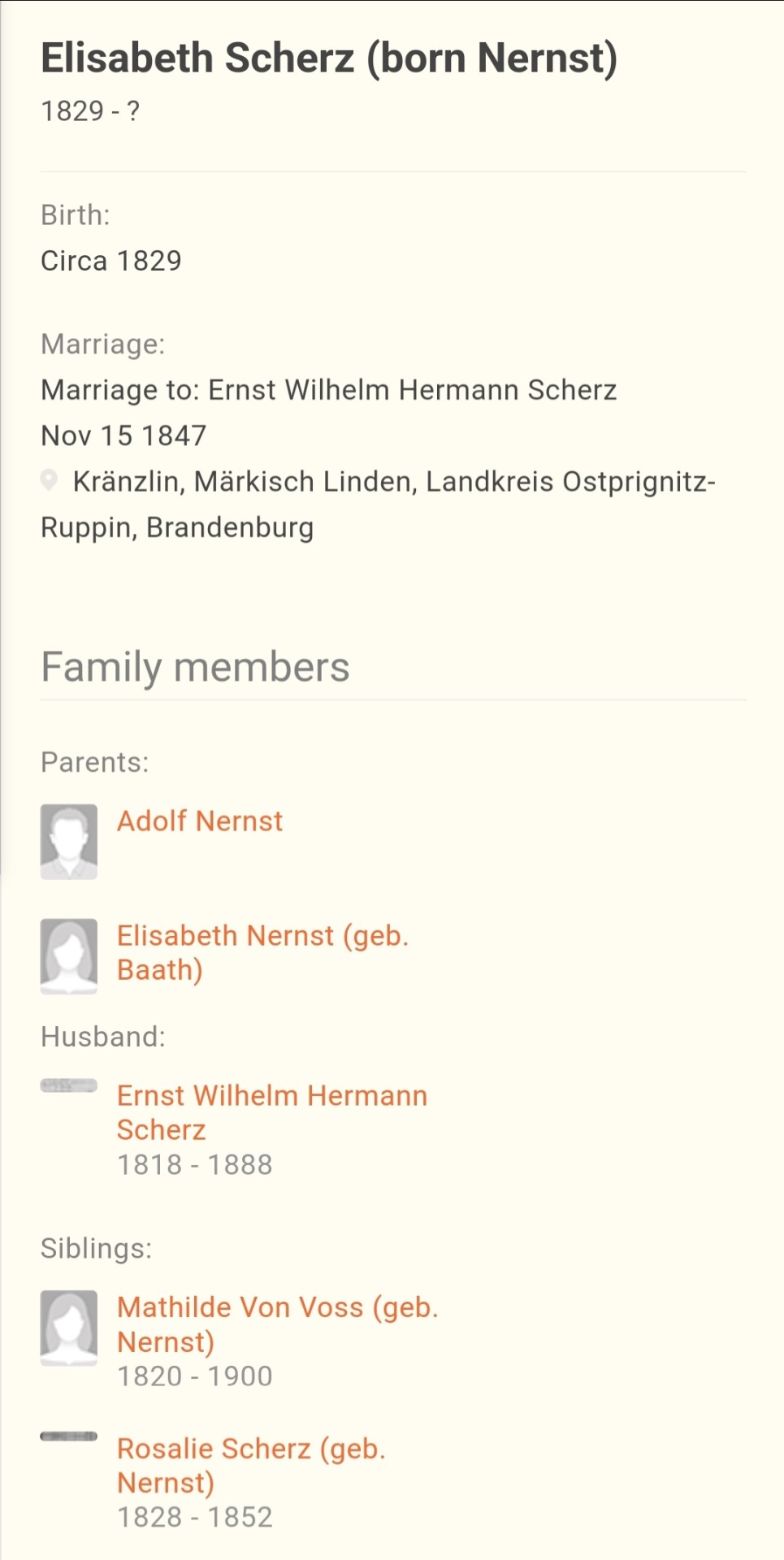
A lot more to come in more than one post. (Paternal side of relatives has looong & a little unfinished research as father's family had 13 children in total (10 is correct when it comes to children born in Scotland.)
EDIT: [THE SCREENSHOT ABOUT ERNST] DON'T PAY ATTENTION TO CHILDREN. The Information has some mistakes (not all 5 children, Catharine instead of Katharina, etc. maybe.)
His death date is 6.6.1888, so of course, he and Chris the granddaughter didn't live at the same time at all.
#Christa Winsloe#The Child Manuela#Mädchen in Uniform#Madchen in Uniform#relatives#Das Mädchen Manuela
5 notes
·
View notes
Text
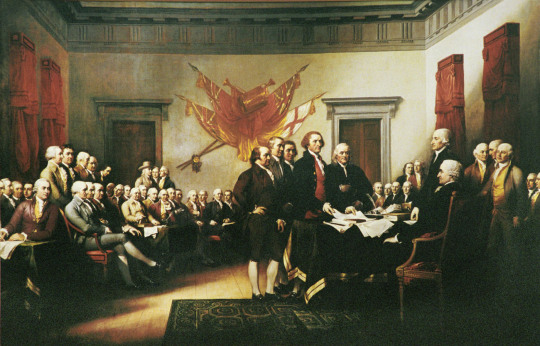
THE REAL 4TH OF JULY
There is nothing you need to know about our government, and our Democracy that can't be found in the writings, and texts of the Founding Fathers. It's a good idea to re-read their words now and then so that we don't lose sight of who we are supposed to be as a nation. Below is a sampling of some of the best.
..........................
A little matter will move a party, but it must be something great that moves a nation.
Thomas Paine, Rights of Man, 1792
As parents, we can have no joy, knowing that this government is not sufficiently lasting to ensure any thing which we may bequeath to posterity: And by a plain method of argument, as we are running the next generation into debt, we ought to do the work of it, otherwise we use them meanly and pitifully. In order to discover the line of our duty rightly, we should take our children in our hand, and fix our station a few years farther into life; that eminence will present a prospect, which a few present fears and prejudices conceal from our sight.
Thomas Paine, Common Sense, 1776
Freedom had been hunted round the globe; reason was considered as rebellion; and the slavery of fear had made men afraid to think. But such is the irresistible nature of truth, that all it asks, and all it wants, is the liberty of appearing.
Thomas Paine, Rights of Man, 1791
A rigid economy of the public contributions and absolute interdiction of all useless expenses will go far towards keeping the government honest and unoppressive.
Thomas Jefferson, letter to Lafayette, 1823
All, too, will bear in mind this sacred principle, that though the will of the majority is in all cases to prevail, that will to be rightful must be reasonable; that the minority possess their equal rights, which equal law must protect, and to violate would be oppression.
Thomas Jefferson, First Inaugural Address, March 4, 1801
But with respect to future debt; would it not be wise and just for that nation to declare in the constitution they are forming that neither the legislature, nor the nation itself can validly contract more debt, than they may pay within their own age, or within the term of 19 years.
Thomas Jefferson, September 6, 1789
A government ought to contain in itself every power requisite to the full accomplishment of the objects committed to its care, and to the complete execution of the trusts for which it is responsible, free from every other control but a regard to the public good and to the sense of the people.
Alexander Hamilton, Federalist No. 31, January 1, 1788
Experience is the oracle of truth; and where its responses are unequivocal, they ought to be conclusive and sacred.
Alexander Hamilton, Federalist No. 20, December 11, 1787
If it be asked, what is the most sacred duty and the greatest source of our security in a Republic? The answer would be, an inviolable respect for the Constitution and Laws — the first growing out of the last.... A sacred respect for the constitutional law is the vital principle, the sustaining energy of a free government.
Alexander Hamilton, Essay in the American Daily Advertiser, Aug 28, 1794
But a Constitution of Government once changed from Freedom, can never be restored. Liberty, once lost, is lost forever.
John Adams, letter to Abigail Adams, July 17, 1775
Fear is the foundation of most governments; but it is so sordid and brutal a passion, and renders men in whose breasts it predominates so stupid and miserable, that Americans will not be likely to approve of any political institution which is founded on it.
John Adams, Thoughts on Government, 1776
Government is instituted for the common good; for the protection, safety, prosperity, and happiness of the people; and not for profit, honor, or private interest of any one man, family, or class of men; therefore, the people alone have an incontestable, unalienable, and indefeasible right to institute government; and to reform, alter, or totally change the same, when their protection, safety, prosperity, and happiness require it.
John Adams, Thoughts on Government, 1776
Be in general virtuous, and you will be happy.
Benjamin Franklin, letter to John Alleyne, August 9, 1768
Finally, there seem to be but three Ways for a Nation to acquire Wealth. The first is by War as the Romans did in plundering their conquered Neighbours. This is Robbery. The second by Commerce which is generally Cheating. The third by Agriculture the only honest Way; wherein Man receives a real Increase of the Seed thrown into the Ground, in a kind of continual Miracle wrought by the Hand of God in his favour, as a Reward for his innocent Life, and virtuous Industry.
Benjamin Franklin, Positions to be Examined, April 4, 1769
I am for doing good to the poor, but I differ in opinion of the means. I think the best way of doing good to the poor, is not making them easy in poverty, but leading or driving them out of it. In my youth I traveled much, and I observed in different countries, that the more public provisions were made for the poor, the less they provided for themselves, and of course became poorer. And, on the contrary, the less was done for them, the more they did for themselves, and became richer.
Benjamin Franklin, On the Price of Corn and Management of the Poor, November 1766
A popular Government, without popular information, or the means of acquiring it, is but a Prologue to a Farce or a Tragedy; or, perhaps both. Knowledge will forever govern ignorance: And a people who mean to be their own Governors, must arm themselves with the power which knowledge gives.
James Madison, letter to W.T. Barry, August 4, 1822
All men having power ought to be distrusted to a certain degree.
James Madison, speech at the Constitutional Convention, July 11, 1787
Conscience is the most sacred of all property.
James Madison, Essay on Property, March 29, 1792
Guard against the impostures of pretended patriotism.
George Washington, Farewell Address, September 19, 1796
I had always hoped that this land might become a safe and agreeable asylum to the virtuous and persecuted part of mankind, to whatever nation they might belong.
George Washington, letter to Francis Van der Kamp, May 28, 1788
In proportion as the structure of a government gives force to public opinion, it is essential that public opinion should be enlightened.
George Washington, Farewell Address, September 19, 1796
All quotes can be found, along with hundreds more at: http://www.marksquotes.com/Founding-Fathers/
© 2023
1 note
·
View note
Text
Olá leitores curiosos! Hoje estamos aqui para compartilhar com vocês a nossa experiência com o Apple iPhone 11 (64 GB) Preto. Este smartphone é simplesmente incrível e vamos te contar tudo sobre ele. Resistente à água e poeira, com um sistema de câmera dupla de 12 MP e modo Noite, Retrato e vídeos em 4K, além do Face ID para autenticação segura, este aparelho promete revolucionar a forma como você se conecta com o mundo. Então prepare-se para se surpreender com a qualidade e recursos deste dispositivo. Vamos lá!Visão Geral do iPhone 11 (64 GB) PretoAo avaliarmos o iPhone 11 (64 GB) Preto, ficamos impressionados com a durabilidade e resistência do aparelho. Sua certificação IP68 permite que o dispositivo seja submerso em água até 2 metros de profundidade por até 30 minutos, garantindo tranquilidade em situações de acidentes com líquidos.
A qualidade das câmeras também merece destaque, com um sistema de câmera dupla de 12 MP que oferece capturas incríveis, tanto durante o dia quanto à noite. Além disso, a câmera frontal de 12 MP proporciona selfies de alta qualidade, com a opção de vídeos em 4K e câmera lenta. Com o Face ID, a segurança do aparelho está garantida, tornando a experiência do usuário ainda mais completa. Se você busca um smartphone moderno, resistente e com excelentes recursos de câmera, o iPhone 11 é a escolha ideal. Compre o seu agora!Recursos Destacados e Aspectos ImportantesNos aspectos importantes do Apple iPhone 11 (64 GB) Preto, destacamos a resistência à água e poeira, podendo ficar submerso até 2 metros de profundidade por até 30 minutos, graças à certificação IP68. Além disso, a presença do sistema de câmera dupla de 12 MP proporciona fotos de alta qualidade em diferentes situações, como no modo Noite, Retrato e em vídeos em 4K a 60 fps. A câmera frontal de 12 MP também não deixa a desejar, com modo Retrato, vídeos em 4K e câmera lenta, garantindo selfies incríveis.
Outro destaque do iPhone 11 é a tela LCD Liquid Retina HD de 6,1 polegadas, que oferece uma experiência visual imersiva e de alta qualidade. Além disso, a tecnologia Face ID proporciona uma autenticação segura e prática, sem a necessidade de digitar senhas. Com todos esses recursos e tecnologias, o iPhone 11 se destaca como uma excelente opção para quem busca um smartphone completo e de alta qualidade. Não perca a chance de adquirir o seu agora mesmo!
Resolução da Tela
828 x 1792 pixels
Capacidade da Bateria
3110 mAh
Adquira o seu agora mesmo!Insights Detalhados e Recomendações EspecíficasNossos insights detalhados sobre o Apple iPhone 11 (64 GB) Preto revelam um dispositivo verdadeiramente impressionante. Com sua resistência à água e pó, certificada até 2 metros de profundidade por até 30 minutos (IP68), você pode ter a tranquilidade de que seu aparelho está protegido em qualquer situação. A qualidade das câmeras também é um destaque, com um sistema de câmera dupla de 12 MP que oferece opções como modo Noite, modo Retrato e gravação de vídeos em 4K a 60 fps. Além disso, a câmera frontal de 12 MP possui modo Retrato, vídeos em 4K e até câmera lenta para capturar momentos únicos de forma excepcional.
Nossas recomendações específicas para o Apple iPhone 11 (64 GB) Preto incluem a utilização do Face ID para uma autenticação segura e sem complicações. A tela LCD Liquid Retina HD de 6,1 polegadas proporciona uma experiência visual incrível, garantindo cores vivas e detalhes nítidos em todas as suas interações com o dispositivo. Com tantos recursos avançados e uma performance excepcional, este smartphone certamente atenderá às necessidades dos usuários mais exigentes. Se você procura por um dispositivo confiável, poderoso e cheio de recursos, não hesite em adquirir o Apple iPhone 11 (64 GB) Preto. Clique aqui para adquirir o seu agora mesmo! Transform Your WorldNós revisamos com entusiasmo o iPhone 11 Preto e estamos fascinados com todas as incríveis funcionalidades que ele oferece.
Desde a resistência à água e pó até o sistema de câmara dupla de 12 MP e o Face ID para segurança, este smartphone da Apple é verdadeiramente impressionante. Se você está procurando um dispositivo poderoso e confiável, o iPhone 11 Preto é uma excelente escolha. Não perca a oportunidade de adquirir o seu hoje mesmo!
Clique aqui para comprar o iPhone 11 Preto na Amazon!
0 notes
Text
Judgments pronounced month by month by the Paris Revolutionary Tribunal, from its installation to its abolition
Source: Le Tribunal révolutionnaire de Paris: d’après les documents originaux conservés aux archives de l’Empire, suivi de la liste complète des personnes qui ont comparu devant ce tribunal (1866) by Émile Campardon, volume 2, page 217-225
Tribunal from March 10 1793
April 1793 (6 to 30)
Death sentences……………………..9
Acquittals or releases[1]……………16
Sent to a different tribunal………….1
Total number of accused……………26
May 1793 (1 to 31)
Death sentences………………….….9
Acquittals or releases…………….….23
Sent to a different tribunal……….….2
Total number of accused………...….34
June 1793 (1 to 30)
Death sentences…………………….15
Acquittals or releases……………….33
Deportations…………………………..3
Sent to a different tribunal…..……….2
Total number of accused………..…..53
July 1793 (1 to 31)
Death sentences……………….…….14
Acquittals or releases……….……….47
Deportations…………………………..1
Confinement…………………………..2
Prison……………………………….….1
Sent to a different tribunal………..…..1
Total number of accused……………..66
August 1793 (1 to 31)
Death sentences………………...…….5
Acquittals or releases……………..….36
Deportations…………………….……..1
Confinement……………………………1
Sent to a different tribunal………..…..2
Total number of accused……..………45
September 1793 (1 to 30)
Death sentences…………………….17
Acquittals or releases……………….37
Deportations………………………….6
Confinement…………………….……1
Sent to a different tribunal…..……...1
Total number of accused……………62
October 1793 (1 to 8)
Death sentences…………………….13
Acquittals or releases……………….11
Confinement…………………………..1
Prison………………………………….5
Total number of accused…………....30
Vendémiare year II (September 22 to October 21 1793)
Death sentences…………………….10
Acquittals or releases……………….11
Deportations…………………………..1
Confinement…………………………..2
Prison…………………………………..9
Total number of accused………..…..33
Brumaire year II (October 22 to November 20 1792)
Death sentences………………..…….65
Acquittals or releases…………..…….45
Deportations…………………….……..1
Banishment…………………….……….2
Confinement………………………..…..5
Prison………………………………….…2
Seclusion………………………….……..1
Total number of accused……….……..33
Frimaire year II (November 21 to December 20 1792)
Death sentences……………….……….67
Acquittals or releases…………………..91
Deportations……………………………..2
Confinement……………………..………3
Prison………………………………….….3
Total number of accused……………….166
Nivôse year II (December 21 1793 to January 19 1794)
Death sentences…………………..…….61
Acquittals or releases…………….…….101
Confinement……………………….……..2
Prison………………………………..….…3
Total number of accused………………..167
Pluviôse year II (January 20 to February 18 1794)
Death sentences………………………….68
Acquittals or releases…………………….106
Deportations………………………..……..12
Confinement………………………………..5
Prison…………………………………….…3
Sent to a different tribunal…………….….4
Total number of accused…………………198
Ventôse year II (February 19 to March 30 1794)
Death sentences………………………….116
Acquittals or releases…………………….79
Deportations…………………………..…..5
Confinement……………………..………..1
Sent to a different tribunal……………….5
Total number of accused…………………206
Germinal year II (March 21 to April 19 1794)
Death sentences…………………… ..….155
Acquittals or releases……………….…….59
Prison…………………………..……..….…3
Sent to a different tribunal…………….….1
Total number of accused…………………218
Floréal year II (April 20 to May 19 1794)
Death sentences…………………….…….354
Acquittals or releases…………………….155
Confinement……………………………….4
Prison…………………………………….…6
Seclusion……………………………..…….4
Total number of accused……………..…..525
Prairial 1 to 22 year II (May 20 to June 10 1794)
Death sentences…………………….…….281
Acquittals or releases…………………….120
Confinement……………………..………..6
Sent to a different tribunal……………….1
Total number of accused…………………408
After the law of 22 Prairial is passed
Prairial 22 to 30 year II (June 10 to June 18 1794)
Death sentences………………………….228
Acquittals or releases…………………….44
Total number of accused…………………272
Messidor year II (June 19 to July 18 1794)
Death sentences………………………….796
Acquittals or releases…………………….208
Confinement……………………..………..1
Total number of accused…………………1005
Thermidor 1 to 9 year II (July 19 to July 27 1794)
Death sentences………………………….796
Acquittals or releases…………………….208
Confinement………………………..……..1
Total number of accused…………………1005
Thermidor 10, 11 and 12 year II (July 28, 29, 30 1794)
Death sentences after outlaw declaration…….103
Thermidor 27 to 1 Sans-Culottides (August 14 to September 17 1794)
Death sentences…………………….…….14
Acquittals or releases…………………….273
Sent to a different tribunal……………….3
Total number of accused…………………290
1 Sans-Culottides to Brumaire 1 year III (September 17 to October 22 1794)
Death sentences………………………….24
Acquittals or releases………………..…..242
Deportations………………………..……..2
Prison………………………….…………..1
Confinement………………….…………..38
Sent to a different tribunal………..…….4
Total number of accused………….……311
Brumaire year III (October 22 to November 20 1794)
Death sentences………………….…….5
Acquittals or releases…………………..223
Confinement……………………………..8
Total number of accused……….………236
Frimaire 1 to 28 year III (November 21 to December 18 1794)
Death sentences…………………..…….3
Acquittals or releases…………………..99
Confinement……………………………..2
Sent to a different tribunal………..……1
Total number of accused………………105
Tribunal of 8 Nivôse, installed Pluviôse 8 year III (January 27 1795)
Pluviôse year III (January 20 to February 18 1795)
Acquittals or releases……………..…..17
No accusation………………….………3
Sent to a different tribunal……………10
Total number of accused………..……30
Ventôse year III (February 19 to March 20 1795)
Death sentences……………………….1
Acquittals or releases………..………..16
Confinement…………………. ………..2
Sent to a different tribunal………….…2
Total number of accused………………21
Germinal year III (March 21 to April 19 1795)
Acquittals or releases……………..…..4
Confinement………………..…………..1
Sent to a different tribunal……….……7
Total number of accused………..……12
Floréal year III (April 20 to May 19 1795)
Death sentences…………………….16
Acquittals or releases……………….17
Confinement…………………………..3
Sent to a different tribunal……….….10
Total number of accused……………46
—
From April 6 1793 to 22 prairial year II (June 10 1794) 2358 accused appeared before the revolutionary tribunal and were judged the following way:
Death sentences…………………….1258
Acquittals or releases………………..969
Deportations…………………………..34. Prison…………………………………..28
Confinement…………………………..40
Sent to a different tribunal……….….23
Banishment……………………………2
Seclusion……………………………….3
Total number of accused…………2358
From 22 prairial to 9 thermidor year to (June 10 to July 28 1794) 1703 accused, judged as followed:
Death sentences…………………….1366
Acquittals or releases……………….336
Confinement……………………………..1
Total number of accused………..…1703
On 10, 11 and 12 thermidor, 103 people declared outlaws were executed.
From 24 thermidor year II to 28 frimaire year III (August 11 - December 18 1794)
Death sentences…………………….46
Acquittals or releases……………….837
Confinement…………………………48
Sent to a different tribunal……….….8
Deportations…………………………..2
Prison…………………………………...1
Total number of accused……….……942
Finally, from 8 pluviôse to 28 floréal year III (January 27 to May 17 1795) 109 were judged as follows:
Death sentences…………………….17
Acquittals or releases……………..54
Confinement…………………………..6
Sent to a different tribunal……….29
Non-indictment.……………………….3
Total number of accused…………109
[1] The aquittal was pronounced by the tribunal sitting in open court, and release by the tribunal assembled in the Council Chamber.
21 notes
·
View notes
Text
21 avril 1944 - Les Françaises obtiennent enfin le droit de vote !
France fut l’un des premiers pays à instaurer le suffrage universel masculin. c’est en 1792 pendant la Révolution française que le décret du 11 août 1792instaure ce droit malheureusement il sera supprimé quelques années plus tard par le Directoire avant d’être rétabli lors de la Révolution de 1848. Mais pour ce qui est du droit de vote des femmes il faudra attendre l’ordonnance du 21 avril 1944…

View On WordPress
0 notes